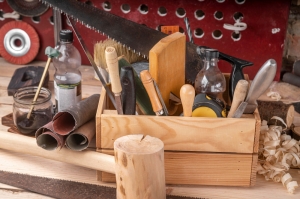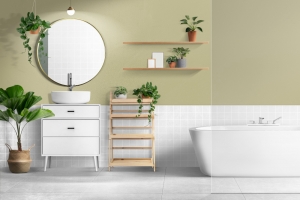Maintaining your home's plumbing is key to creating a safe, comfortable, and efficient living space. Ignoring pipe upkeep can result in expensive repairs, water damage, and potential health hazards like mold or water contamination. Taking a proactive approach to plumbing care can help extend the life of your pipes and ward off unexpected problems. Here are some tips for keeping your plumbing in top condition to ensure a smoothly running and cozy home.
1. Regularly Check for Leaks and Drips
One of the most straightforward ways to maintain your pipes is to monitor them regularly for leaks or drips. Even minor leaks can turn into larger problems over time, such as water damage, mold growth, and increased utility bills. Check for signs of water stains under sinks, around toilets, and near appliances like dishwashers and washing machines. If you notice any leaks, address them promptly by tightening connections or contacting a plumber for more extensive repairs. Early intervention can prevent damage to surrounding areas and help avoid costly repairs down the line.
2. Insulate Pipes to Prevent Freezing
For homes in colder climates, frozen pipes are a common issue during winter. When water freezes inside pipes, it expands, which can lead to burst pipes. To prevent freezing, insulate pipes in unheated areas like basements, garages, and crawl spaces. Pipe insulation materials, such as Rockwool Pipe Insulation, are affordable and easy to install. Additionally, during extremely cold weather, consider letting a trickle of water run from faucets connected to vulnerable pipes. Moving water is less likely to freeze, and this small action can prevent major headaches from frozen pipes.
3. Avoid Pouring Grease and Other Harmful Substances Down the Drain
What goes down your drains has a significant impact on the longevity of your pipes. Grease, oils, coffee grounds, and food particles accumulate over time, leading to blockages and even corrosion. Grease and oil solidify as they cool, creating stubborn clogs in your pipes. To keep your pipes clear, dispose of these substances in the trash rather than down the sink. Additionally, avoid flushing items like paper towels, hygiene products, or “flushable” wipes, as these can clog pipes and cause serious plumbing issues.
4. Install Drain Strainers and Use Them Properly
Drain strainers are a simple but effective tool for protecting your pipes. These devices catch hair, soap scum, and other debris that can cause blockages. Place strainers in sinks, showers, and tubs, and clean them regularly to keep water flowing freely. By preventing debris from entering your pipes, strainers reduce the risk of clogs, helping your plumbing system run smoothly and extending the life of your pipes.
5. Be Mindful of Water Pressure Levels
Excessive water pressure can strain pipes and lead to leaks, bursts, and premature wear. While high water pressure may feel pleasant in the shower, it can be damaging to your plumbing system. Check your water pressure with a simple gauge, which can be purchased at a hardware store. Ideal residential water pressure typically ranges between 40 to 60 psi. If your water pressure exceeds this range, consider installing a pressure regulator to protect your pipes. Maintaining appropriate water pressure helps your plumbing system function optimally and prevents unnecessary stress on the pipes.
6. Schedule Professional Inspections and Maintenance
Even with regular DIY maintenance, scheduling professional inspections is key to keeping your pipes in top condition. A licensed plumber can assess your system for hidden issues, such as small leaks, mineral buildup, or pipe corrosion. Regular inspections allow professionals to address any problems early, preventing costly repairs and ensuring the longevity of your pipes. A professional cleaning service can also help remove buildup and clear hard-to-reach blockages, enhancing the efficiency and health of your plumbing system.
Final Thoughts
Caring for your pipes is about more than just preventing emergencies—it's about fostering a home environment that is safe, efficient, and comfortable. By adopting a few simple habits and investing in periodic maintenance, you can extend the life of your plumbing system and enjoy lasting peace of mind. When it comes to home comfort, a well-maintained plumbing system ensures that you can rely on clean, accessible water without the stress of unexpected pipe problems. With a proactive approach, you can keep your home's pipes in excellent condition for years to come.






